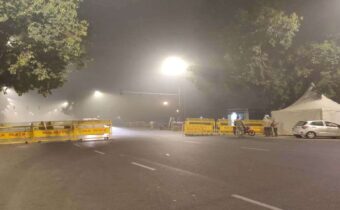Delhi’s air quality slipped into the very poor category on Wednesday morning as low temperatures and slow surface breezes permitted aggregation of contaminations.
The city’s air quality index (AQI) read 357 at 9 am.
As indicated by the India Meteorological Department, Delhi recorded a base temperature of 9.2 degrees Celsius, the most minimal this season up until now. The greatest temperature is probably going to settle around 27 degrees Celsius.
Solid breezes on Sunday and Monday had prompted an improvement noticeable all around quality.
The 24-hour normal AQI read 290 on Tuesday, the second best AQI perusing this month since November 1 (281).
Delhi has seen exceptionally poor or serious air quality on the remainder of the days.
Read Also : India records 9,283 new Covid-19 cases, lowest in 18 months
Adjoining Faridabad (348), Ghaziabad (346), Greater Noida (329), Gurugram (308) and Noida (320) additionally saw a dunk noticeable all around quality on Wednesday morning.
An AQI somewhere in the range of nothing and 50 is thought of “good”, 51 and 100 “acceptable”, 101 and 200 “moderate”, 201 and 300 “poor”, 301 and 400 “exceptionally poor”, and 401 and 500 “serious”.
The Delhi government will accept an approach the resuming of schools, universities and other instructive establishments and work-from-home for its representatives during an audit meeting on Wednesday.
It will likewise talk about if CNG-worked trucks conveying trivial things can be permitted to enter Delhi.
The public authority had on Monday lifted the restriction on development and destruction exercises considering improvement noticeable all around quality and the bother caused to laborers.
Read Also : Supreme Court defers hearing on Delhi air pollution to November 29
The regional government had on Sunday night expanded work-from-home for its representatives and the prohibition on the section of trucks conveying superfluous things till November 26 to battle air contamination and limit its wellbeing impacts. PTI




Pingback: Security increased outside Gautam Gambhir’s residence after ‘ death threat’ mail from ‘ISIS Kashmir’ – Khabre247
Pingback: Supreme Court defers hearing on Delhi air pollution to November 29 – Khabre247
Pingback: India records 9,283 new Covid-19 cases, lowest in 18 months - My Desi Times